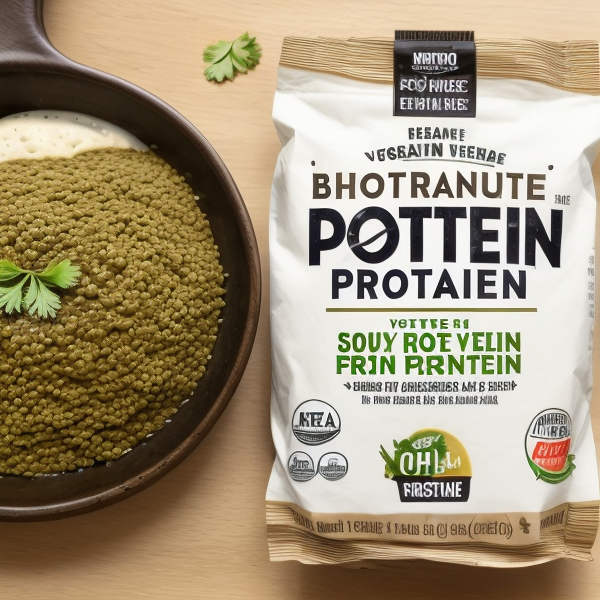Soy-Free Vegan Protein Sources

Introduction:
As more people adopt veganism, there is an increasing demand for plant-based protein sources. However, many vegans avoid soy due to concerns about its potential health risks or allergies. Fortunately, there are plenty of other soy-free vegan protein sources available. In this article, we will explore some of the best options.
Best Soy-Free Vegan Protein Sources:
1. Quinoa: This ancient grain from South America is a complete protein, meaning it contains all nine essential amino acids that our bodies cannot produce on their own. It also provides fiber, iron, magnesium, and other nutrients. To boost its protein content, try adding quinoa to salads, stir-fries, or making quinoa bowls with beans and vegetables.
2. Hemp Seeds: Hemp seeds are another complete protein source, containing all nine essential amino acids. They are also rich in omega-3 fatty acids, fiber, iron, and zinc. Sprinkle hemp seeds onto salads, yogurt, smoothies, or oatmeal for a quick and easy protein boost. You can also make your own hemp milk by blending hemp seeds with water.
3. Chia Seeds: Like hemp seeds, chia seeds are also a complete protein source and contain omega-3 fatty acids, fiber, calcium, and other minerals. They absorb water and expand, making them a great addition to smoothies, yogurt, oatmeal, or baked goods. You can also try making chia seed puddings by mixing chia seeds with plant-based milk and sweeteners.
4. Tofu and Tempeh: Made from soybeans, these fermented products are not technically soy but are often included in soy-free vegan diets. Tofu has a milder flavor and can be used as a meat substitute in stir-fries, curries, and scrambled “eggs.” Tempeh has a firmer texture and nuttier flavor, making it ideal for burgers, sandwiches, or crumbling over salads.
5. Lentils and Beans: Legumes like lentils and beans are excellent sources of plant-based protein. They are also high in fiber, iron, and B vitamins. Try adding cooked lentils to soups, stews, salads, or burritos. Beans can be used similarly or mashed and seasoned to make delicious vegan chili or refried beans.
6. Nuts and Seeds: Almonds, cashews, walnuts, sunflower seeds, and sesame seeds are all great sources of protein and healthy fats. Enjoy them raw, roasted, or as a base for homemade nut or seed butter. You can also add chopped nuts or seeds to salads, yogurt, or oatmeal for added crunch and protein.
7. Seitan: Also known as wheat gluten, seitan is made from gluten extracted from wheat flour. It has a chewy texture and can be seasoned and cooked in various ways to resemble meat. Seitan is a good source of protein and can be found in many Asian dishes or made at home.
8. Green Peas: While green peas may not be the first thing that comes to mind when thinking of protein sources, they actually contain around 8 grams of protein per cup. Additionally, they are rich in fiber, vitamin K, and folate. Add green peas to stir-fries, curries, soups, or salads for a boost of plant-based protein.
9. Spirulina and Chlorella: These blue-green algae are packed with protein, vitamins, and minerals. They can be taken as supplements or added to smoothies, juices, or baked goods. Spirulina and chlorella have a strong taste, so start with small amounts and gradually increase if desired.
Conclusion:
In conclusion, there are numerous soy-free vegan protein sources available to help you meet your daily protein needs. By incorporating a variety of these foods into your diet, you can ensure that you’re getting all the essential amino acids and other important nutrients your body requires.
